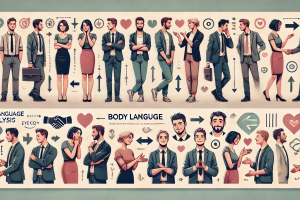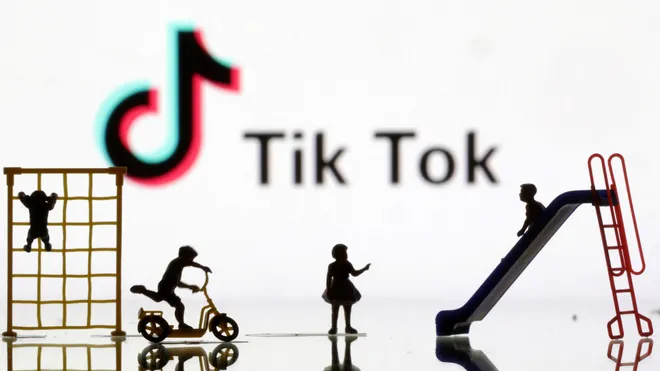Understanding the TikTok Privacy Issues and Legal Battles: What You Need to Know
- Posted by Harry White (United Kingdom)
- Categories General
- Date August 3, 2024
The digital age has brought unparalleled convenience and connectivity, but it also raises significant concerns about privacy, especially for children. One of the most notable recent developments in this area is the case where the U.S. sues TikTok over child privacy violations. This case has captured widespread attention and highlights the ongoing challenges of protecting user data in a rapidly evolving digital landscape.
Overview of TikTok’s Privacy Issues
TikTok Privacy Issues
TikTok, the popular social media app known for its short-form videos, has been at the center of numerous privacy controversies. The platform, owned by ByteDance, has faced scrutiny over its data collection practices and how it handles user information. Concerns have been particularly acute regarding the data collected from minors.
- Data Collection Concerns: TikTok collects a wide range of data, including location information, device identifiers, and browsing history. While this data collection is common among social media platforms, TikTok’s practices have raised red flags due to the sheer volume and specificity of the data collected.
- Inadequate Parental Controls: Despite offering some parental control features, critics argue that TikTok’s measures are insufficient to protect young users from privacy breaches and inappropriate content.
The U.S. Sues TikTok Over Child Privacy Violations
In a significant legal move, the U.S. Department of Justice (DOJ) has filed a lawsuit against TikTok and its parent company, ByteDance, alleging violations of child privacy laws. This lawsuit centers on accusations that TikTok collected personal information from children under 13 without parental consent, in direct violation of the Children’s Online Privacy Protection Act (COPPA).
- COPPA Violations: COPPA is a federal law designed to protect the privacy of children under 13 by requiring verifiable parental consent before collecting personal information from minors. The lawsuit claims that TikTok failed to comply with these requirements, thereby compromising the privacy of millions of young users.
- FTC’s Role: The Federal Trade Commission (FTC) referred the case to the DOJ after conducting its investigation, which found substantial evidence of COPPA violations. This referral underscores the seriousness of the allegations and the potential consequences for TikTok.
Details of the FTC’s Investigation
FTC TikTok Investigation
The FTC’s investigation into TikTok began as part of a compliance review following a 2019 settlement with the app’s predecessor, Musical.ly, which ByteDance acquired and rebranded as TikTok. The investigation aimed to ensure that TikTok adhered to the terms of the settlement, which included strict guidelines for protecting children’s privacy.
- Investigation Findings: The FTC’s investigation revealed that TikTok continued to collect personal information from children without obtaining the necessary parental consent. This practice persisted despite the previous settlement, indicating a pattern of non-compliance.
- Misleading Practices: The FTC also found that TikTok misled users about its data privacy practices. Despite assurances that personal data would be protected, the platform allegedly failed to implement adequate measures to safeguard user information.
Legal Proceedings and Implications
The case, formally titled United States of America v. ByteDance Ltd., is being heard in the U.S. District Court for the Central District of California. The outcome of this case could have significant implications for TikTok and other social media platforms.
- Potential Penalties: If found guilty of the alleged violations, TikTok could face substantial fines and be required to implement more stringent privacy measures. These penalties aim to ensure compliance with COPPA and protect the privacy of young users.
- Broader Impact: The lawsuit against TikTok serves as a critical test of how child privacy laws are enforced in the digital age. A ruling in favor of the DOJ could set a precedent for how other tech companies handle user data, particularly for minors.
TikTok Data Collection Practices
TikTok Data Collection
TikTok’s data collection practices have been a focal point of the privacy debate. The platform collects a wide array of information, including:
- Personal Information: Names, email addresses, and phone numbers.
- Usage Data: Interaction with videos, content preferences, and time spent on the app.
- Device Information: IP addresses, device identifiers, and location data.
This extensive data collection raises concerns about user privacy and the potential for misuse of information.
Privacy Violations TikTok
The allegations of privacy violations against TikTok are not new. The platform has faced multiple lawsuits and regulatory actions over its data handling practices. These cases highlight the ongoing challenges of balancing user engagement with privacy protection.
- Previous Violations: TikTok has been fined in several countries for violating privacy laws. These fines underscore the need for more robust data protection measures.
- User Trust: Repeated privacy violations have eroded user trust in TikTok. Ensuring transparency and compliance with privacy laws is crucial for rebuilding this trust.
Protecting Children’s Privacy Online
Children’s Online Privacy Protection Act (COPPA)
COPPA is a key piece of legislation designed to protect the privacy of children online. Enacted in 1998, COPPA requires websites and online services to obtain verifiable parental consent before collecting personal information from children under 13.
- COPPA Requirements: Websites must provide clear privacy policies, obtain parental consent, and allow parents to review and delete their children’s information.
- Enforcement: The FTC is responsible for enforcing COPPA and has the authority to levy fines and take legal action against violators.
TikTok Child Privacy
The lawsuit against TikTok highlights the importance of protecting child privacy online. With millions of young users, TikTok has a responsibility to adhere to privacy laws and safeguard personal information.
- Parental Controls: TikTok offers some parental control features, but critics argue that these measures are insufficient. Strengthening parental controls and ensuring compliance with COPPA are essential steps for protecting young users.
- Educating Parents and Children: Educating parents and children about online privacy is crucial. Parents should be aware of the risks and take steps to protect their children’s information, while children should be taught about the importance of privacy and safe online behavior.
Future Outlook for TikTok’s Privacy Policies
Implications for TikTok
The lawsuit against TikTok could lead to significant changes in how the platform handles user data. Potential outcomes include:
- Stricter Regulations: The case could result in stricter regulations for TikTok and other social media platforms, ensuring better protection of user data.
- Increased Scrutiny: TikTok’s data collection practices will likely face increased scrutiny from regulators and the public. Transparency and compliance with privacy laws will be critical for maintaining user trust.
TikTok and ByteDance
The legal battle between the U.S. government and TikTok also impacts ByteDance, the parent company. ByteDance’s handling of user data and its compliance with privacy regulations are under the microscope, with potential repercussions for its other products and services.
- Global Impact: The case against TikTok could have a global impact, influencing how other countries regulate social media platforms and protect user privacy.
- Corporate Responsibility: ByteDance must demonstrate corporate responsibility by implementing robust privacy measures and ensuring compliance with international regulations.
Conclusion
The case where the U.S. sues TikTok over child privacy violations underscores the critical importance of protecting children’s privacy online. As TikTok faces legal challenges and increased scrutiny over its data collection practices, the outcome of this case could set a precedent for how social media platforms handle user data, particularly for minors. Ensuring compliance with COPPA and other privacy regulations is essential for safeguarding personal information and maintaining user trust.
For more insights on digital privacy and protecting your data, visit Regent Studies. Stay informed and take proactive steps to protect your privacy in the digital age.
By understanding the implications of the TikTok lawsuit and the importance of child privacy protection, users can make informed decisions about their online activities and ensure their personal information remains secure. The legal battles and regulatory actions against TikTok highlight the ongoing challenges of privacy in the digital age and the need for robust measures to protect user data.
Previous post
How to Protect Your Android Device from Malware: Essential Security Tips and Tools
You may also like

How to Read Body Language: Mastering the Art of Non-Verbal Communication

Earbuds vs Headphones: Which Is Better for You?


